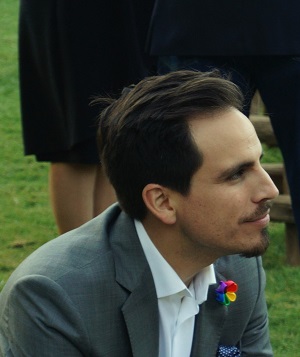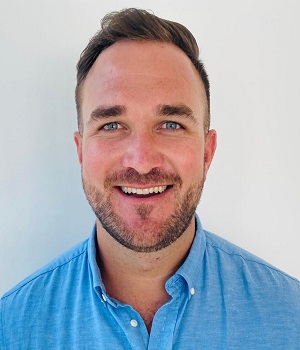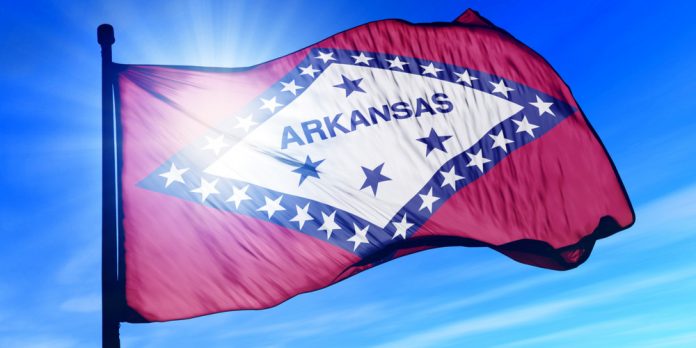The state of Arkansas launched its online sports betting market earlier this year in March with a unique licensing framework that focuses on promoting homegrown establishments.
SBC Americas recently spoke to Brandon Walker, Head of Amelco USA, and Victor Araneda, CBDO at GAMING1, about each of their respective supplier’s journeys in the Natural State so far and what lies ahead in the market’s future.
SBC: Congratulations on being only one of two suppliers to go live in Arkansas! Can you talk us through what it took to reach this landmark and why you saw it as a key opportunity?

Victor Araneda: Thank you! We’re proud of what the GAMING1 team has been able to achieve. Becoming the first to market is always a challenge in any industry, so launching nearly a whole two months before our competitors makes it all the more gratifying.
We saw it as a key opportunity, simply because the lack of sports betting represented a great opportunity for a brand like ourselves to launch there and become a pioneer in Arkansas-based sports betting.
Brandon Walker: Thank you too! It’s a key opportunity for us given the state’s unique licensing requirements – as we knew there was only going to be a handful of players on the market. We’ve spent plenty of time getting this ready, and we knew the local brands were on a mission to ensure that online sports betting would become a grassroots opportunity for the state.
We’ve been able to do this given we’re very much a bespoke platform rather than a white label supplier, which means we’ve effectively custom-built what our Arkansas partner, Saracen Casino, has to offer its online customers.
Looking at the demographics, you can also see why this is a key opportunity. With roughly four million residents in the state split across four available sportsbooks, it quickly becomes an incredibly lucrative venture if your product is good enough to capture the majority market share.
SBC: Having both been live in the state for close to a month – what have been your key takeaways so far?

BW: It’s been a great experience for us to fine-tune the custom build we’ve put together for Saracen. First up has been frontline customer support, which has been absolutely crucial. To put this into context, you’re effectively dealing with a four-million-strong state unaccustomed to ever betting online before. At this stage of the game, and indeed the next 6-12 months, it’s going to be all about acquisition and retention. New customers need to be supported, and it needs to be the job of us, and our partners, to make that learning experience as seamless as possible for new customers.
If we can get this right, it is only going to encourage more and more to get involved in the betting space. Feedback from customers is essential. In such a hyper-competitive space between competing brands, we need to ensure that our top-quality product keeps fans with Saracen’s online offering, rather than trying anywhere else.
VA: Our first launch in the US has been as exciting as we expected. The North American market is full of potential and currently has a lot of buzz around it. So much so that we have instantly seen strong acquisition figures from across the state of Arkansas and with North America becoming a frontier for sports betting, we’ve seen an enthusiastic response from these new players.
Additionally, we’ve been seeing a strong activation of our partner’s patrons in Southland – something we hope we can continue to support through stronger integrations. On top of that, the timing of the deal couldn’t have been better, with the Arkansas Razorbacks making such a deep run in March Madness meant we were able to enjoy a thoroughly successful launch.
SBC: Given Arkansas’ licensing framework has been established with a focus on promoting homegrown establishments from the state – do you believe the market is set for a different journey than other states we’ve seen come online?
BW: Absolutely, this is one of the US’s first properly grassroots markets – so it’s going to be unique. From my perspective, our mission is to give local casinos and sportsbooks the chance to prove themselves in servicing their local market.
Of course, our product is deployed by some of the US’s biggest names, so what we in effect have, is the same market-leading platform technology usually deployed by US’s tier-one operators – but now in the hands of a local operation. This means we get to offer our best-in-class products to a local brand that can ensure the money and revenue they generate is passed back into the local community, rather than leaving the state as part of a big brand operator’s balance sheet.
VA: Yes, the model that the state of Arkansas has adopted is one that is very dear to our hearts and one we’ve encouraged internationally throughout the years, as GAMING1 is a company with a strong land-based heritage.
This type of regulatory framework serves to protect the long-term viability of local operators, which is fantastic as these companies have devoted significant time and money to establishing their presence in the market. We hope more regulators follow this example as it breeds healthy competition and creates a more inclusive environment for newcomers.
SBC: As we’re effectively looking at a maximum of four competing operators in the state – how do your brands differentiate themselves to gain the majority market share?
VA: By offering omnichannel experiences that consider the variety of platforms that are accessible these days, we can stand out from competitors in the same market as us. This starts with our ability to improve our product and support our land-based partners.
This gives players a superior choice of options, and this not only makes the product more attractive but also enhances player retention. We know this from our own experience and it’s what we’ve done for the past decade.
BW: I think it’s going to be very competitive – and it all comes down to who can showcase more products and features as part of their platform service, and in turn, get them live before our competitors.
Technology and indeed the UX is going to be a key part of that, as that’s going to be what decides how much you acquire and retain. Given we service the likes of Wynn, Hard Rock, and Fubo – and we’re now putting that same technology into Saracen’s hands to make it a truly homegrown project. Appealing to local market preferences will be key too, especially when it comes to college sports markets.
SBC: Looking to Arkansas players – what’s your take on sporting profiles in terms of demographics and player segmentation? What verticals do you believe will perform best?
VA: As we’re currently in the NFL off-season, our player profiles are leaning more towards younger demographics. Although overall, basketball reigns supreme with its impressive reach across North America, as well as its interest from a variety of people outside the US.
Recently, the North American market has explored sports betting with more and more states rethinking their view on sports betting – it’s only natural to see sports betting as the area which has the most potential. However, we hope that regulators start to consider expanding into online casino shortly as our experience in Europe clearly demonstrates the strengths of online casino.
BW: For us, it’s a very new market, but it’s still America! So, with that line of thinking – it’s relatively easy to assume that while Arkansas doesn’t have any major pro league teams to follow, there’s an incredibly passionate following for local college sports and regional leagues across the board.
So, it’s all about delivering a specialized sporting vertical that provides the local entertainment Arkansas sports betting customers are looking for. As mentioned, we’ve built out a custom trading team to service Saracen with Arkansas sport. To put it into perspective, this now means that Amelco is the world’s most comprehensive trading and data supplier for regional Arkansas sporting leagues!















